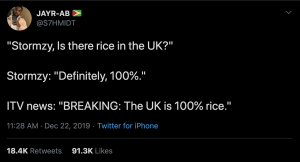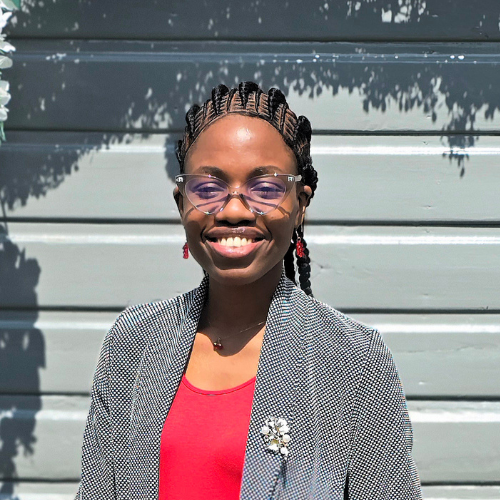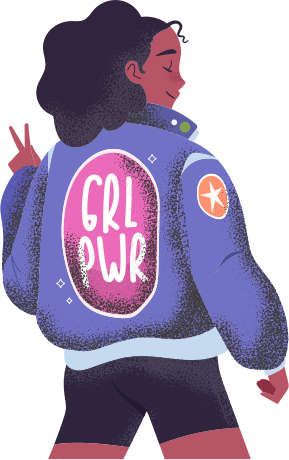I cannot be the only brown woman who’s been flirting with total despair, watching the British media dust off its well-rehearsed script of complete denial every time the R word has been mentioned over these past few months. We now live against a backdrop where race “debates” have become a mainstay of the media circuit, where calling out racism is an act far worse than actually being racist, and where being “woke” has been dragged down the well-trodden path of appropriation – only to be gleefully rebranded a slur.
From the conscious failure to grasp the basic semantics of Stormzy’s “definitely, 100%”, to the unrelentingly sexist, racist media storm that precipitated “Megxit”, and now the screeching pivot from “low-skilled migrants” to “key workers” as soon as it serves the nation’s interests: the temptation to completely disengage for the sake of self-preservation is strong.

Whilst turning our backs doesn’t feel like an option, the sheer emotional attrition involved in calling out injustice and hypocrisy when it’s aimed at you is exhausting. Irrespective of identity, ability, or ethnicity, none of us are limitless fountains of emotional energy; but how can we let injustice remain unchecked? To paraphrase the old adage, no person is an island. The only satisfying solution relies on those occupying positions of power and privilege shouldering the joint task of challenging the status quo, so that those who are already without aren’t alone.
A concept otherwise known as allyship.
It’s a term often dismissed as a slacktivist performance designed to signal one’s own virtue (I’m looking at you, Matt McGorry). But done well, it can be a powerful tool to champion those around us, take on some of the hard work, and importantly, enable meaningful change.
What exactly is allyship?
Given the misconceptions and malpractice surrounding it, it’s critical to state what it isn’t:
- It isn’t a self-defined identity: would-be allies don’t get to proclaim themselves as such: only the communities they seek to uplift and champion get to decide this. Delving deeper, allyship is not about self-congratulation, or “saving” anyone. Bluntly put, it isn’t about you
- It isn’t for the few: allyship can be practiced by everybody, because we all occupy a position of relative power and privilege. Whether you’re non-BlPOC, lighter-skinned, straight, cis, able-bodied, we all have identities that have left us with both privileged and marginalised experiences.
- It isn’t about perfection: making mistakes is inevitable. Of course, the fear of getting it wrong isn’t a watertight defence against inaction. What is important is that we leave our egos at the door, lower our defences, and get ready to continually educate ourselves. Receiving and implementing critical feedback open-heartedly will only make you a better ally to those that need it.
- It doesn’t work in theory alone: allyship requires tangible action and sincere practice. Would-be allies are often comically lionised for doing the least, from wearing safety pins to soapboxing during acceptance speeches. Unaccompanied by concrete action, these words and gestures can ring extremely hollow to the communities they are intended to support. Whilst audiences are quick to applaud, they’re even better at quietly and politely upholding oppressive structures at the same time.
How can we be effective allies?
Through our power and privilege, we have special access (and a corresponding immunity) that others don’t. We need allyship because studies have shown that when the marginalised self-advocate to disrupt the harm coming their way, they are often penalised.
The uncomfortable fact is that some truths are far more palatable to oppressors when they come from lips that look like theirs.
But as daunting as this all sounds, allyship can be remarkably simple and effective in practice. What it can look like is:
- Using your speech strategically: inform and educate the circles of power in which you operate so this burdensome task doesn’t fall to those who are already marginalised.
- Sharing growth opportunities: proactively share resources to which you have access by virtue of your privilege in order to broaden access and increase the chances of equitable inclusion.
- Getting comfortable with discomfort: believe underrepresented people’s experience and don’t view venting as a personal attack; consider it an opportunity to gain insight and identify what you could do to help.
- Reporting discrimination: document, call out, and report prejudicial and discriminatory behaviour through the appropriate channels; whatever discomfort you face in doing so pales in comparison to that of the person targeted.
- Using inclusive language: learning new terms and adapting your language isn’t difficult; educate yourself on why you should be avoiding certain words and phrases, and encourage those around you to follow suit.
- Becoming a sponsor or mentor: champion someone from an underrepresented community to capitalise on opportunities to which they may otherwise lack access; this can be within the work environment and outside of it.
- Breaking out of your echo chamber: follow voices different to your own, you will learn more about the experiences of the underrepresented and see why this work truly matters.
None of us want to think that we’re discriminating against those around us. But the truth is, to varying degrees, we all undeservedly profit from the very structures that oppress others. Even if we acknowledge this injustice, remaining silent is as good as perpetuating it. The only way we stand a chance of dismantling inequality is by proactively uplifting one another. None of us are free until all of us are. Because ultimately, in the face of injustice, silence is violence; silence is complicity.
—
This months guest blogger is Rini Jones. Rini is a London-based policy and advocacy adviser in the nonprofit sector, she is passionate about equality at all intersections, learning languages, and running marathons! Twitter: @_RiniJones_




